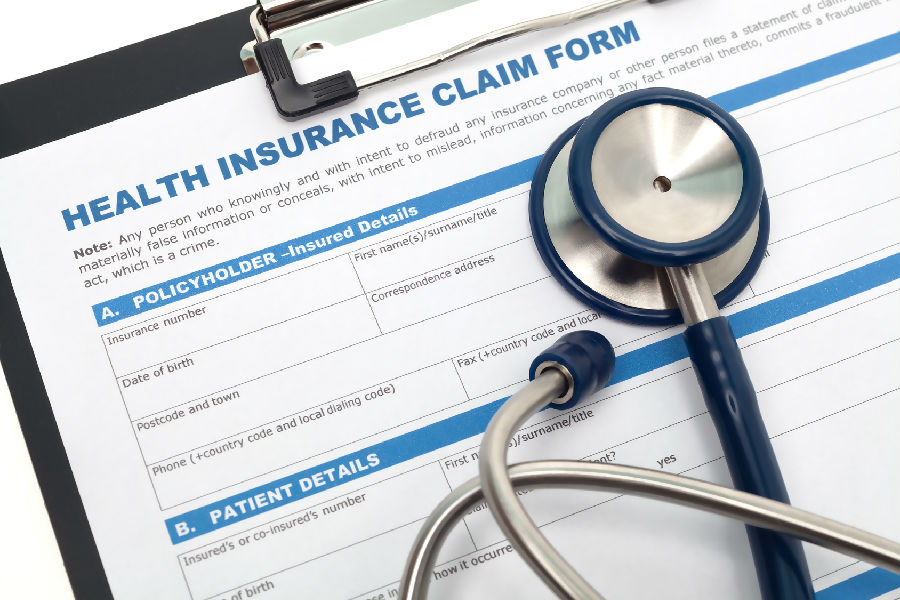(单词翻译:单击)
听力文本
Hari Sreenivasan: What you pay for health insurance is increasingly a complex web of formulas. And now, your personal data, everything from where you live, to what clothing you buy, to your magazine subscriptions, may factor into what you pay or whether you get coverage at all.
In a series of reports co-published with NPR, the investigative non-profit news organization pro Publica is looking into the strategies insurance companies are using. And joining us now from Denver is Pro Publica reporter Marshall Allen. Marshall, first, what sorts of data are they looking at? And what sort of inferences can they make from that?
Marshall Allen: Well, that's a good question, Hari. They're looking at all different types of personal and proprietary and public information. The kinds of things that people would normally assume to be private. And I bet probably most of the viewers in your audience right now are having their data gathered by the data brokers that are teaming up with the health insurance companies to analyze this. And so the data that they're gathering would include your education record, your property records, any debts you might have, your income level, your race and ethnicity. Even social media interactions. They're gathering those. So, they're gathering all this information, and they're putting it into these complex computer algorithms, and then they're spitting out predictions about how much we might cost based on all these economic and lifestyle attributes.

Hari Sreenivasan: So, give me some examples.
Marshall Allen: Well, so for example, so some of the inferences they make are creepy, I guess. You know you could say this kind of turns the creepiness level up a bit. For example, you know, they can tell if a woman has changed her name. And so, they say if a woman has changed her name in the last 24 months she may have recently gotten married or maybe she recently got divorced. And so she could be considering, you know, getting pregnant soon or maybe she's stressed from that divorce and so she's going to have a lot of mental health care costs. Or, you know, if you're a low-income minority, they would assume that you are living in a dangerous and dilapidated neighborhood, and so you could be at higher risk of health cost. Or another one is if a woman has bought plus-size clothing, they would predict that she might be more likely to be depressed, which could also lead to higher health care costs. So these are things that they're looking at, trends in the data for groups of people, and then they're attributing the inferences to individuals within that group, and kind of one of the fundamental problems is that for any individual, this could just be wrong.
Hari Sreenivasan: And so what if they're wrong about this? You're still going to be falling into a bracket based on this group, and the suspicion that they have that you are part of it?
Marshall Allen: Yeah, I mean they're scoring us and predicting our health care costs based on the groups that we fall into. And so you know, I went to LexisNexis and obtained, they'll give you a certain portion of your data, and you know, it was like a creepy walk down memory lane for me. You know, they had data for me going back 25 years to the address of the home I grew up in in Golden, Colorado. You know, all my old phone numbers. And with each of the addresses, you know, they had a little indicator there. Was this a high-risk neighborhood or not? And you know, I'm not, I grew up in a middle class kind of environment so I didn't grow up in any high risk neighborhoods. But it made me wonder what if I had. And when I talked to the industry, I mean they promise that they're only using this information for the purpose of helping people. So that what they would say, the argument for doing this is that they can do better case management. But, just as it could be used for good, it could also be used to discriminate. And, the health insurance industry has a long history of discriminating against sick people. That still goes on to this day.
Hari Sreenivasan: Marshall Allen of Pro Publica joining us from Denver today. It is part of a yearlong reporting project called the health insurance hustle. You can find it on their websites. Thanks for joining us today.
Marshall Allen: Thank you, Hari.
重点解析
1.non-profit 非盈利的
The centre is run on a non-profit basis.
这个中心的运作不以营利为目的。
2.likely to be 可能
They believed there were likely to be further attacks
他们认为很可能会有更多的袭击。
3.fall into 分类
These books fall into several categories.
这些书可分成几类。
4.middle class 中产阶级
He is rapidly losing the support of blue-collar voters and of middle-class conservatives.
他正在迅速失去蓝领选民与中产阶级保守派的支持。
5.turn up 开大
Bill would turn up the TV in the other room.
比尔会把另一个房间里的电视声音开大。
参考译文
哈里·斯雷尼瓦桑:您为健康保险支付的费用愈发成为一个复杂的公式网络。而现在,您的个人数据,从您居住的地方到您购买的服装,再到您的杂志订阅,可能会影响您的付款或者决定您是否能够获得保险。在与NPR共同发布的一系列报告中,调查性的非盈利新闻机构专业公司Publica正在对保险公司正在使用的策略进行调查。现在从丹佛加入我们的是Pro Publica的记者马歇尔·艾伦。首先,马歇尔,他们在看什么样的数据?他们可以从中做出什么样的推论呢?
马歇尔·艾伦:嗯,这是一个很好的问题,哈里。他们正在查看所有不同类型的个人及专有和公共信息。那种人们通常认为是隐私的东西。我敢打赌,现在咱们观众中的大多数人,你们的数据都被数据经纪人收集,并用来分析这个了,而这些数据经纪人与健康保险公司之间存在合作。因此,他们收集的数据将包括您的教育记录,您的财产记录,您可能拥有的任何债务,您的收入水平,以及您的种族。甚至社交媒体互动。他们正在收集那些。因此,他们正在收集所有这些信息,并且他们将这些信息放入复杂的计算机算法中,然后他们根据所有这些经济和生活方式属性,给出我们可能产生多少健康花费的预测。
哈里·斯雷尼瓦桑:那么,请举几个例子。
马歇尔·艾伦:那么,例如,我猜他们做的一些推论是令人毛骨悚然的。你知道你可以说这种毛骨悚然的程度稍有上升。例如,你知道,他们可以判断一个女人是否更改过她的名字。因此,他们说如果一个女人在过去的24个月里变更了她的名字,她最近可能已经结婚或者离婚了。因此,她可能会考虑,很快就会怀孕,或者也许她会因为离婚而感到压力,因此她会产生很多精神保健费用。或者,你知道,如果你是一个低收入的少数族裔,他们会认为你生活在一个危险且破旧的社区,所以你可能面临更高的健康成本风险。或者另一个是,如果一个女人购买了大码的衣服,他们会预测她可能更容易感到沮丧,这也可能导致更高的医疗保健费用。
因此,这些是他们正在关注的事情,人群数据的趋势,然后他们将会把这些推论归因到该群体中的个人,而其中一个基本问题是,对于任何个人而言,这种推论可能是错的。
哈里·斯雷尼瓦桑:那么如果他们错了怎么办呢?你仍然会陷入这个群体的架构,并接受他们的怀疑,你是否属于这个群体中的一员?
马歇尔·艾伦:是的,我的意思是他们正在给我们打分,并根据我们归属的群体来预测我们的医疗保健费用。所以你知道,我去了LexisNexis并获得了,他们会给你一些你的数据,而且你知道,这对我来说就像一条毛骨悚然的记忆之路。你知道,他们的数据可以追溯到我25年前,在科罗拉多州戈尔登长大的家乡的地址。你知道,我所有的旧电话号码。你知道,每个地址他们都有一个小指标。这是一个高风险社区吗?你知道,我不是,我在一个中产阶级的环境中长大,所以我并没有在任何高风险社区成长的经历。但它让我想知道如果我的确如此呢。当我与业界交谈时,我的意思是他们承诺他们只是为了帮助别人而使用这些信息。所以他们会说,这样做的理由是他们可以实现更好的案件管理。但是,正如它可以用于善举一样,它也可以用于实施歧视。而且,健康保险行业,长久以来,一直存在歧视病人的行为。今天这种歧视仍在继续。
哈里·斯雷尼瓦桑:今天Pro Publica的马歇尔·艾伦,从丹佛加入我们。这是为期一年的报告项目中的一部分,名为《健康保险的喧嚣》。您可以在他们的网站上获取这一资源。感谢您做客节目。
马歇尔·艾伦:谢谢你,哈里。
译文为可可英语翻译,未经授权请勿转载!


